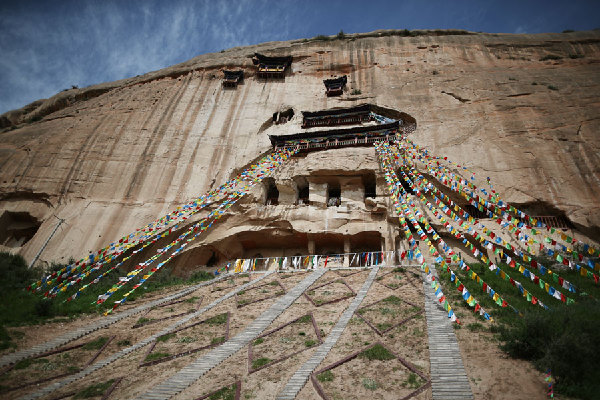Restoration of ancient grottoes begins in China's Gansu

The Mati Temple Grottoes cover about 100 square kilometers in Sunan, a Yugu ethnic autonomous county 600 kilometers from Gansu's provincial capital Lanzhou.[Photo by Chen Xi/China Daily]
Northwest China's Gansu province has launched a restoration project in a key part of the Mati Temple Grottoes in Zhangye city, a national key cultural relic protection site, local authorities said.
The work is focused on one of the site's major attractions called the Thousand Buddha Grottoes, which have eight caves that are among the best-preserved in the whole site, said Yao Guilan, director of the institute for cultural heritage preservation in Zhangye.
According to Yao, due to the damp environment, cracks have appeared in the rock mass and water seepage has occurred in the caves.
The restoration will be conducted in six of the eight caves, including a consolidation of the rock mass and improving water drainage on the roof of the caves, among others, said Yao.
The project is expected to be completed by February 2022, added Yao.
First built around 1,600 years ago along the route of the ancient Silk Road, the Mati Temple Grottoes are famous for Buddhist relics, including more than 500 colored sculptures as well as murals spanning a total of over 1,200 sq meters.
To better preserve the site, a digitalization project started in June, and an archaeological investigation involving researchers at home and abroad is also underway, Yao said.
-
As AI encounters Dunhuang's art, the ancient caisson ceiling bridges centuries to the present.
View all stories

 Gansu thrives from green development
Gansu thrives from green development  >
>